Most of the time, pro bono work is done in partnership with local legal aid organizations that serve low-income individuals and families. These organizations rely heavily on volunteer lawyers to help meet the overwhelming demand for legal services in
certain areas of the law, such as family law, housing law, and immigration law. Because these organizations often have robust training programs, the barriers to entry are low for volunteer lawyers, such that volunteer lawyers can quickly get up to
speed on a particular area of law.
However, law firms do not have to rely solely on existing legal aid organizations—they can also create and lead their own pro bono initiatives. From launching a legal clinic or partnering with nonprofits, law firms have the flexibility to design
initiatives that reflect their capabilities and strengths. For example, a law firm may offer monthly legal clinics for a variety of groups, including minority-owned businesses or veterans or tenants facing eviction. Alternatively, a law firm may offer
legal education workshops or know-your-rights seminars for underserved communities.
Another way law firms can strengthen their commitment to pro bono work is by hiring dedicated pro bono counsel. These professionals help coordinate efforts, build partnerships, and ensure that pro bono work is integrated into the law firm’s overall
mission and practice.
In addition to supporting communities through offering their services, lawyers can also give back by focusing on future and emerging legal professionals and providing opportunities for education and mentorship. Having successfully traversed the complex
pathway to licensure, lawyers are positioned to offer critical information to those navigating this often-intimidating trajectory. Educating and mentoring can be beneficial to all ages and experience levels, from middle school to beyond law school.
A relatively easy way for a lawyer to help future lawyers is to simply educate individuals regarding the legal profession. This could involve attending a career day at a local public school to discuss daily life and work, or hosting a “field trip”
at a law firm’s office. Students who receive high-level information on the profession from an early age have ample opportunity to explore their interests and plan for the future. Since many people have a limited understanding of the vast opportunities
available within the profession, it can be eye-opening for many to learn of the multitude of directions a lawyer can take.
More specifically, lawyers can also be of great value to law students in their communities by providing mentorship and participating in panel discussions, practice-focused lectures, and advocacy competitions. Law schools are constantly looking for lawyers
to volunteer as seminar speakers, moot court judges, and advocacy team coaches. While the benefit to students is readily apparent in that they receive constructive feedback from a seasoned expert, any lawyer who is hesitant to offer up their time
should bear in mind these events give them a chance to exercise their own legal muscles, as well as scout potential talent.
Lastly, lawyers can mentor more junior lawyers, through their local bar organization or otherwise. Lawyers receive formal mentorship in their roles from the supervisors, who are almost always more experienced lawyers. That said, there are certain questions
and topics that a young lawyer may not feel comfortable discussing with a member of their respective organization. There are many topics that may fall into this category, including career path changes, negotiating terms of employment, and ethics,
for example.
 Delaney Beier of Bradley Arant Boult Cummings LLP helps clients mitigate and manage their environmental liabilities, responsibilities, and risks. In doing so, Delaney advises clients in a wide variety of matters arising out of agency proceedings, enforcement actions, citizen suits, permitting, compliance and due diligence matters, transactions, brownfield redevelopment and site remediation, and litigation.
Delaney Beier of Bradley Arant Boult Cummings LLP helps clients mitigate and manage their environmental liabilities, responsibilities, and risks. In doing so, Delaney advises clients in a wide variety of matters arising out of agency proceedings, enforcement actions, citizen suits, permitting, compliance and due diligence matters, transactions, brownfield redevelopment and site remediation, and litigation.
 Sean Ferrito is a member of the Harris Beach Murtha Medical and Life Sciences Industry Team, which has earned a national reputation for defense of successful product liability matters, with emphasis on FDA-regulated companies. In addition to products liability, Sean assists in litigating a variety of complex matters facing healthcare organizations, luxury coops/condos and restaurants in NYC.
Sean Ferrito is a member of the Harris Beach Murtha Medical and Life Sciences Industry Team, which has earned a national reputation for defense of successful product liability matters, with emphasis on FDA-regulated companies. In addition to products liability, Sean assists in litigating a variety of complex matters facing healthcare organizations, luxury coops/condos and restaurants in NYC.
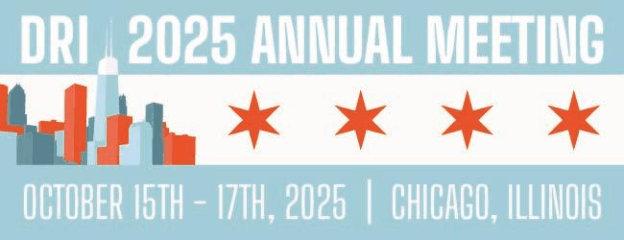



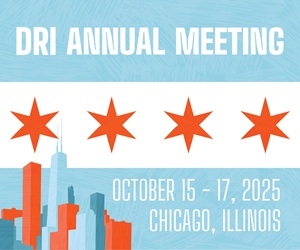
 Lori K. O'Tool of Preg O'Donnell & Gillett PLLC is the President of the DRI Foundation.
Lori K. O'Tool of Preg O'Donnell & Gillett PLLC is the President of the DRI Foundation. Delaney Beier of Bradley Arant Boult Cummings LLP helps clients mitigate and manage their environmental liabilities, responsibilities, and risks. In doing so, Delaney advises clients in a wide variety of matters arising out of agency proceedings, enforcement actions, citizen suits, permitting, compliance and due diligence matters, transactions, brownfield redevelopment and site remediation, and litigation.
Delaney Beier of Bradley Arant Boult Cummings LLP helps clients mitigate and manage their environmental liabilities, responsibilities, and risks. In doing so, Delaney advises clients in a wide variety of matters arising out of agency proceedings, enforcement actions, citizen suits, permitting, compliance and due diligence matters, transactions, brownfield redevelopment and site remediation, and litigation. Sean Ferrito is a member of the Harris Beach Murtha Medical and Life Sciences Industry Team, which has earned a national reputation for defense of successful product liability matters, with emphasis on FDA-regulated companies. In addition to products liability, Sean assists in litigating a variety of complex matters facing healthcare organizations, luxury coops/condos and restaurants in NYC.
Sean Ferrito is a member of the Harris Beach Murtha Medical and Life Sciences Industry Team, which has earned a national reputation for defense of successful product liability matters, with emphasis on FDA-regulated companies. In addition to products liability, Sean assists in litigating a variety of complex matters facing healthcare organizations, luxury coops/condos and restaurants in NYC.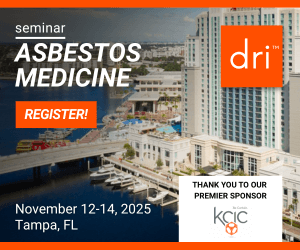
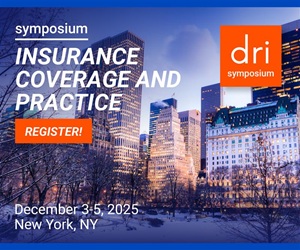
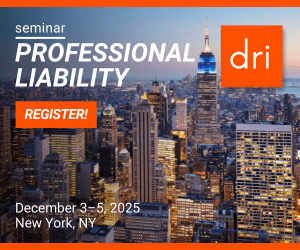


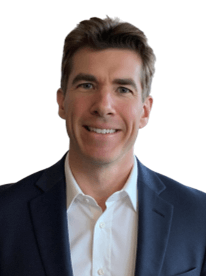 Chris Casaleggio is the author of Claims Burnout: Recharge Strategies for Adjusters & Attorneys. He is also a regional vice president at The Vertex Companies.
Chris Casaleggio is the author of Claims Burnout: Recharge Strategies for Adjusters & Attorneys. He is also a regional vice president at The Vertex Companies.


